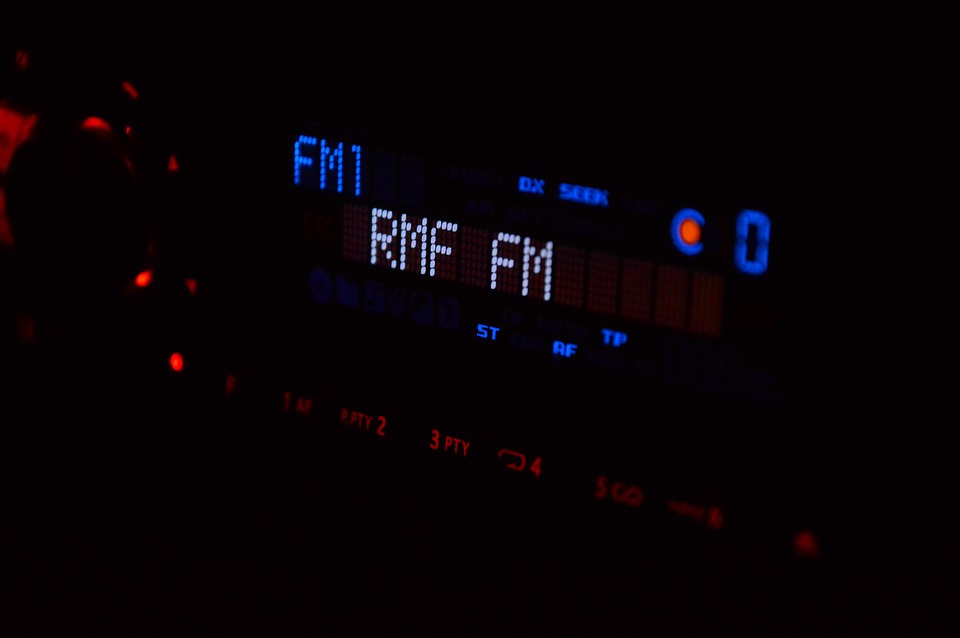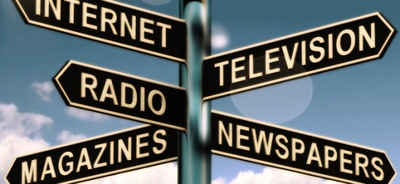Online Schools
Campus Schools
Radio Stations w/ Top 40 by State
Radio Stations and Communication & Multimedia Schools
Early radio was actually a radio telegraph systems which did not carry audio. On Christmas Eve in 1906, Reginald Fessendenn made supposedly the first audio transmission that could be considered a broadcast. Charles Herrold started broadcasting in California in 1909 and was carrying audio by the next year.
During the next ten years, many radio enthusiast had build their own radio receivers. Westinghouse, who owned KDKA AM of Pittsburgh, Pennsylvania started broadcasting as the first licensed "commercial" radio station on November 2, 1920 as the results of the US presidential election in 1920. Broadcasting in the same year, on May 20, 1920, without a license was the Montreal station, now CFCF-AM, and on August 20, 1920, the Detroit station, now WWJ.
On August 27, 1920, Radio Argentina began regularly scheduled transmissions from the Teatro Coliseo in Buenos Aires making its own priority claim. The station was licensed on November 19, 1923. The delay was due to the lack of official Argentine licensing procedures before that date. This station continued regular broadcasting of entertainment and cultural fare for several decades.
Internet based radio became feasible in the mid '90s, and the new medium required no licensing with stations broadcasting from anywhere in the world
without the need for "over the air" transmitters, and in 1996, 'A' Net Station (A.N.E.T.) began broadcasting commercial free from Antarctica.
A Radio network (US) is an broadcasting entity that provides programs to individual Radio stations, which are only licensed to broadcast in a specific area. Each network can hold a few stations it owns and operates, usually in the big markets.
Radio Broadcasting Schools
Want to be in the dynamic and competitive world of radio? And why not? Radio is fun and there's a certain amount of "celebrity" attached to being on-the-air.
If you're a born conversationalist and like attention. If that sounds like you, a Radio Broadcasting degree could be the right choice to help you launch an exciting new career.
Multiple forms of media, including radio, television and digital media are covered in most undergraduate broadcasting degree programs. Associate's and bachelor's degrees in radio broadcasting provide students with the skills needed for entry-level jobs in the field. Programs are designed to teach students theories, methods, and techniques used to plan, produce, and distribute audio programs and messages, and that prepares individuals to function as staff, producers, directors, and managers of radio shows and media organizations. Students often staff on-campus radio stations in addition to completing writing, reporting and media studies. The best programs in radio broadcasting provide students with hands-on experiences that can be used in the job market.
Radio Stations & Broadcasting Schools
- Alabama Radio Stations
- Alaska Radio Stations
- Arizona Radio Stations
- Arkansas Radio Stations
- California Radio Stations
- Colorado Radio Stations
- Connecticut Radio Stations
- Delaware Radio Stations
- Florida Radio Stations
- Georgia Radio Stations
- Hawaii Radio Stations
- Idaho Radio Stations
- Illinois Radio Stations
- Indiana Radio Stations
- Iowa Radio Stations
- Kansas Radio Stations
- Kentucky Radio Stations
- Louisiana Radio Stations
- Maine Radio Stations
- Maryland Radio Stations
- Massachusetts Radio Stations
- Michigan Radio Stations
- Minnesota Radio Stations
- Mississippi Radio Stations
- Missouri Radio Stations
- Montana Radio Stations
- Nebraska Radio Stations
- Nevada Radio Stations
- New Hampshire Radio Stations
- New Jersey Radio Stations
- New Mexico Radio Stations
- New York Radio Stations
- North Carolina Radio Stations
- North Dakota Radio Stations
- Ohio Radio Stations
- Oklahoma Radio Stations
- Oregon Radio Stations
- Pennsylvania Radio Stations
- Rhode Island Radio Stations
- South Carolina Radio Stations
- South Dakota Radio Stations
- Tennessee Radio Stations
- Texas Radio Stations
- Utah Radio Stations
- Vermont Radio Stations
- Virginia Radio Stations
- Washington Radio Stations
- Washington, DC Radio Stations
- West Virginia Radio Stations
- Wisconsin Radio Stations
- Wyoming Radio Stations





